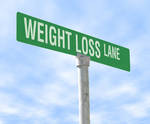|
|
Weight management
|
|

Fat distribution can influence a person's risk of disease. Fat carried around the waist and in the abdominal area, characterized by the "apple shape", is associated with an increased risk for many medical problems such as heart disease, cancer, high blood pressure, and diabetes. Fat that is mostly distributed around the buttocks and thighs is associated with a lower risk of developing these diseases. Research points to differences in appetite control and energy expenditure. It is important for obese people not to hold themselves responsible for their condition. Obese people should be evaluated for medical consequences of their obesity. Motivated persons are encourage to enter medically supervised treatment programs that use a multidisciplinary approach to weight loss. Many people are tempted by ads that use celebrities to tout liquid fasting diets for weight loss. Ads claim quick and easy weight loss with use of such products. Very obese patients may be referred to these types of diets. Their diets are carefully supervised by their healthcare provider. Fasting diets for weight loss may be right for obese persons who have serious weight-related medical problems. Rapid weight loss is the primary advantage of using these diets. This may be helpful in motivating the individual to continue with the program. This may help to support lifestyle changes which are needed for continued weight loss. Binge eating is like bulimia, but does not include purging behaviors. A diagnosis of binge-eating disorder is made when a person binges an average of two days per week over a six month period. The following guidelines have been developed that may help control binge eating: - Eat only at established meal times. - Avoid keeping foods around that may trigger bingeing. - Avoid fad or very restrictive diets. - Keep a food diary and log to assess what prompted the binge. Binge eating can be difficult to control because many people turn to food as a way of dealing with their feelings. Keeping a food diary can be beneficial in identifying specifically what feelings are likely to trigger binge eating as well as what types of foods are consumed during a binge. Strategies can then be employed to reduce the urge to binge when the impulse strikes. Body composition describes the percentages of fat, muscle and bone in your body. Many experts think men's bodies should be between 12 to 18 percent fat, while women's should be 18 to 22 percent fat. The risk of developing weight associated medical problems increases if the majority of body fat is located in the abdominal area. This risk decreases if body fat is primarily located in the hips, buttock and thigh region. Height and weight tables are generally used to determine how person's weight compares to a standard. However, weight in these tables is an overall measure of all components of the body. Individuals may differ in muscle, frame size and percentage of body fat. The waist to hip ratio of body composition assessment provides information on where the majority of body fat is located.
Definitions and termsFat blocker Obesity Czech plastic surgery clinic
|
|
Information in this document about Weight loss named Weight management is for End User's use only and may not be sold, redistributed or otherwise used for commercial purposes. The information is an educational aid only. It is not intended as medical advice for individual conditions or treatments of Weight loss. Additionally, the manufacture and distribution of herbal substances are not regulated now in the United States, and no quality standards currently exist like brand name medicine and generic medicine. Talk about Weight loss to your doctor, nurse or pharmacist before following any medical regimen to see if it is safe and effective for you. © Copyright 2007 World Disability Organization, Weight loss section. |
